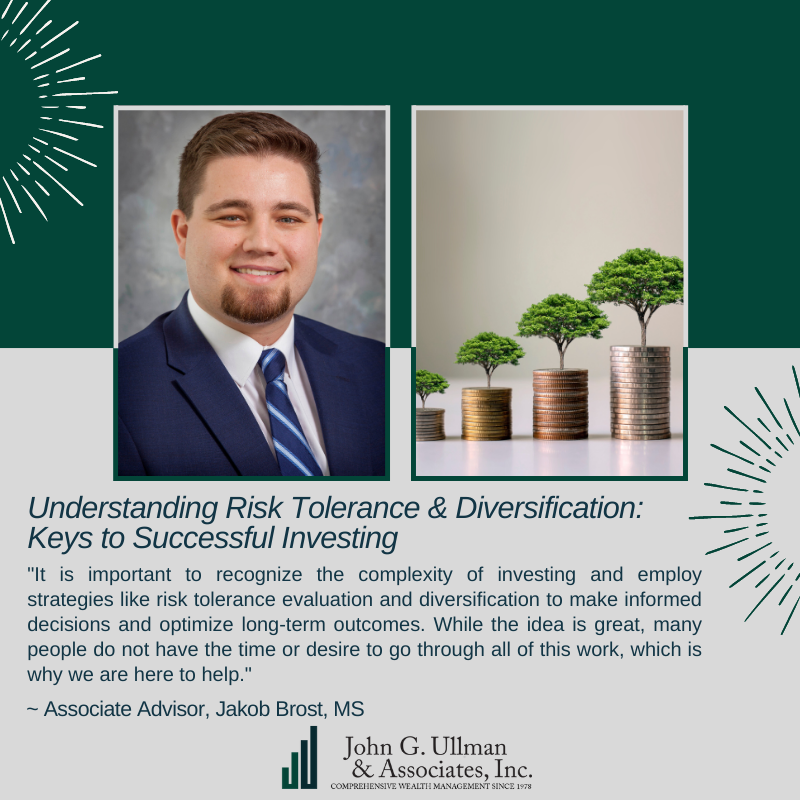A common misconception that some people make is that gambling and investing are the same. This idea can become amplified during hard market times or economic downturns. No matter the reason, there are significant differences between the two, particularly in the ability to manage and mitigate your risk. Two essential investment concepts that deal with the management of risk are diversification and risk tolerance. This article explores the importance of both of these concepts and how it relates to your investments.
Diversification is a fundamental principle of investing that involves spreading investments across various platforms to reduce correlation and mitigate risk. This can include different types of investments, industries, sectors, or countries. Diversification is often summarized by the adage “don’t put all your eggs in one basket.” The two types of risk related to diversification is unsystematic risk and systematic risk. Unsystematic risk pertains to specific companies, products, or industries and can be reduced through diversification. In contrast, systematic risk, also known as market risk, affects the entire market or economy and cannot be eliminated through diversification. It’s important to note that while diversification can reduce risk, it does not eliminate it entirely. This idea helps lead us into risk tolerance.
Risk tolerance is an individual’s emotional threshold for accepting risk. It is influenced by personal values, past experiences, emotions, and other factors. Risk tolerance is subjective, and there is no right or wrong level of risk tolerance. However, it is essential to determine an appropriate risk tolerance based on one’s financial situation and goals. It’s worth noting that risk tolerance is not static and can change over time due to new experiences and shifting circumstances. Regularly reassessing risk tolerance ensures that investment decisions align with one’s emotional limits.
While both diversification and risk tolerance have their individual benefits, they are most effective when utilized together. Without proper diversification, a portfolio may be exposed to higher risk levels than what aligns with an individual’s risk tolerance. Conversely, a well-diversified portfolio must also consider risk tolerance to ensure it is not overly conservative or overly aggressive in the eyes of the investor.
Investing is a crucial component of one’s financial journey. When approached correctly, investing can help grow wealth over time, combat inflation, and achieve various financial goals such as retirement or funding education. It is important to recognize the complexity of investing and employ strategies like risk tolerance evaluation and diversification to make informed decisions and optimize long-term outcomes. While the idea is great, many people do not have the time or desire to go through all of this work, which is why we are here to help.
At JGUA, your advisor can help evaluate and build your portfolio to make sure it is properly diversified and meets your risk tolerance. We also have a team of professionals constantly monitoring the markets and making adjustments to your portfolio as necessary. If you are interested or have any questions, please contact us at 607-936-3785 or [email protected] to learn more.


